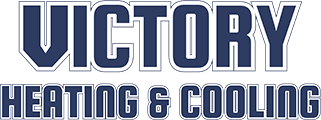HVAC Repairs vs. Replacement: When Should You Invest in a New System?
When it comes to HVAC systems, homeowners often find themselves torn between repairing their existing system or investing in a new one. This decision can be tough, as it involves considering several factors such as cost, efficiency, and long-term benefits. In this blog, we will detail some of the key indicators that can help you determine whether it's time to repair or replace your HVAC system.
1. Age and Efficiency of Your System:
One of the primary factors to consider is the age and efficiency of your HVAC system. As systems age, their efficiency tends to decline, resulting in increased energy bills and reduced performance. A general rule of thumb is that if your system is over 10-15 years old and requires repairs often, it may be more cost-effective to replace your broken unit with a newer, more energy-efficient model. To determine the efficiency of your current system, you can refer to resources such as the Energy Star website.
2. Frequency and Cost of Repairs:
Another aspect to consider is the frequency and cost of repairs. If your HVAC system requires frequent repairs, it may be a sign that it's nearing the end of its lifespan. Continuously investing in repairs can quickly add up, making a replacement a more viable option in the long run. Additionally, if the cost of repairs exceeds 50% of the price of a new system, it's often recommended to opt for a replacement instead.
3. Energy Efficiency and Savings:
Upgrading to a new HVAC system can offer significant energy savings over time. Newer models are more energy-efficient, and they play a crucial role in reducing your monthly utility bills. To determine the energy efficiency of a particular system, you can refer to resources such as the Department of Energy's Energy Efficiency and Renewable Energy website. By investing in a new system, you not only save money but also contribute to a greener environment.
4. Comfort and Indoor Air Quality:
If your current HVAC system is struggling to maintain a comfortable indoor temperature or is unable to effectively filter the air, it may be time for a replacement. Newer systems come equipped with advanced features that provide better temperature control and improved indoor air quality. Investing in a new system can ensure that you and your family enjoy optimal comfort and breathe cleaner air.
5. Financial Incentives and Rebates:
When considering a replacement, it's essential to explore any available financial incentives and rebates. Many government and industry associations offer rebates or tax credits for homeowners who choose energy-efficient systems. These incentives can significantly offset the initial cost of a new system and make the investment more affordable.
Deciding between HVAC repairs and replacement can be a complex task, but evaluating factors such as age, efficiency, repair costs, energy savings, comfort, and available incentives can help you make an informed decision. If you're still unsure about the best course of action, it's advisable to consult with a professional HVAC contractor like Victory Heating & Cooling. Our team of experts can assess your system and provide personalized recommendations based on your specific needs and budget.
Remember, investing in a new HVAC system is a long-term decision that can improve your comfort, reduce energy costs, and enhance the overall value of your home.
Contact Victory Heating & Cooling today at (517) 300-3488 for a comprehensive evaluation and expert advice.

